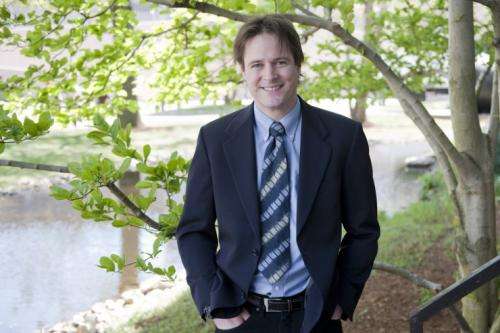Microbes evolve faster than ocean can disperse them

Two Northeastern University researchers and their international colleagues have created an advanced model aimed at exploring the role of neutral evolution in the biogeographic distribution of ocean microbes.
Their findings were published Thursday in the journal Science. The paper—titled "Biogeographic patterns in ocean microbes emerge in a neutral agent-based model"—was co-authored by Ferdi Hellweger, a microbial ecology expert and an associate professor of civil and environmental engineering; his doctoral student Neil Fredrick, PhD'15; and oceanographer Erik van Sebille of Australia's University of New South Wales.
Their results flew in the face of the long held notion that microbes are infinitely mobile—that the same cells could be found anywhere in the world's oceans, unhindered by geographic boundaries. On the contrary, the researchers found that microbes evolve faster than the ocean circulation can disperse them, leading to substantial—and dynamic— biogeographic patterns in their surface ocean population.
"Microbes differ between provinces because of neutral evolution and dispersal limitation," said Hellweger, whose ongoing research on this topic is supported by grants from the National Science Foundation and the National Oceanic and Atmospheric Administration. "Because provinces are not well-mixed, the differences can continue to grow."
What's more, the findings shed light on how ocean microbes may respond to global climate change. "You may not see microbes adapt to climate change as rapidly if ocean microbes were completely mixed and they were everywhere," Hellweger posited. "Certain species of microbes may not thrive under new temperatures in certain provinces."
Over the past several decades, ecologists have come to understand that both natural selection and neutral evolution—that variation within and between species is caused by genetic drift and random mutations—play a role in the biogeographic patterns of ocean microbes. In this study, Hellweger et al. quantified the role of neutral processes by simulating division, mutation, and death of some 100,000 individual marine bacteria cells with full genomes in a global surface ocean circulation model.
More information: Biogeographic patterns in ocean microbes emerge in a neutral agent-based model, www.sciencemag.org/content/345/6202/1346.abstract
Journal information: Science
Provided by Northeastern University

















